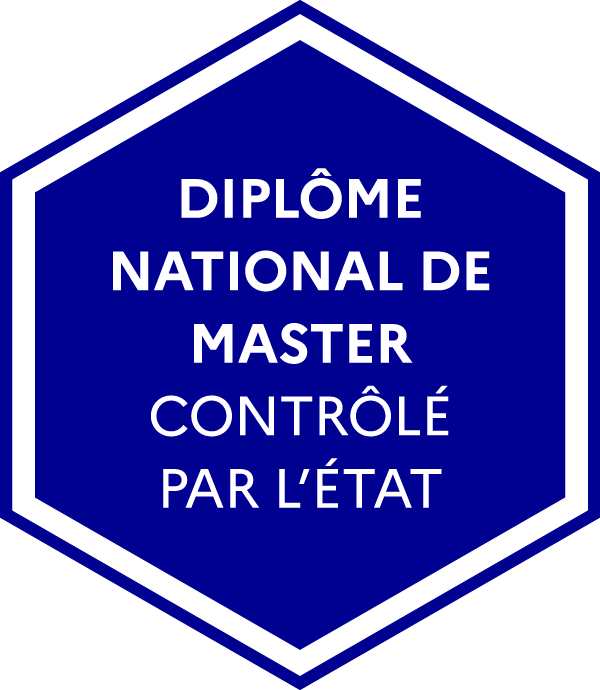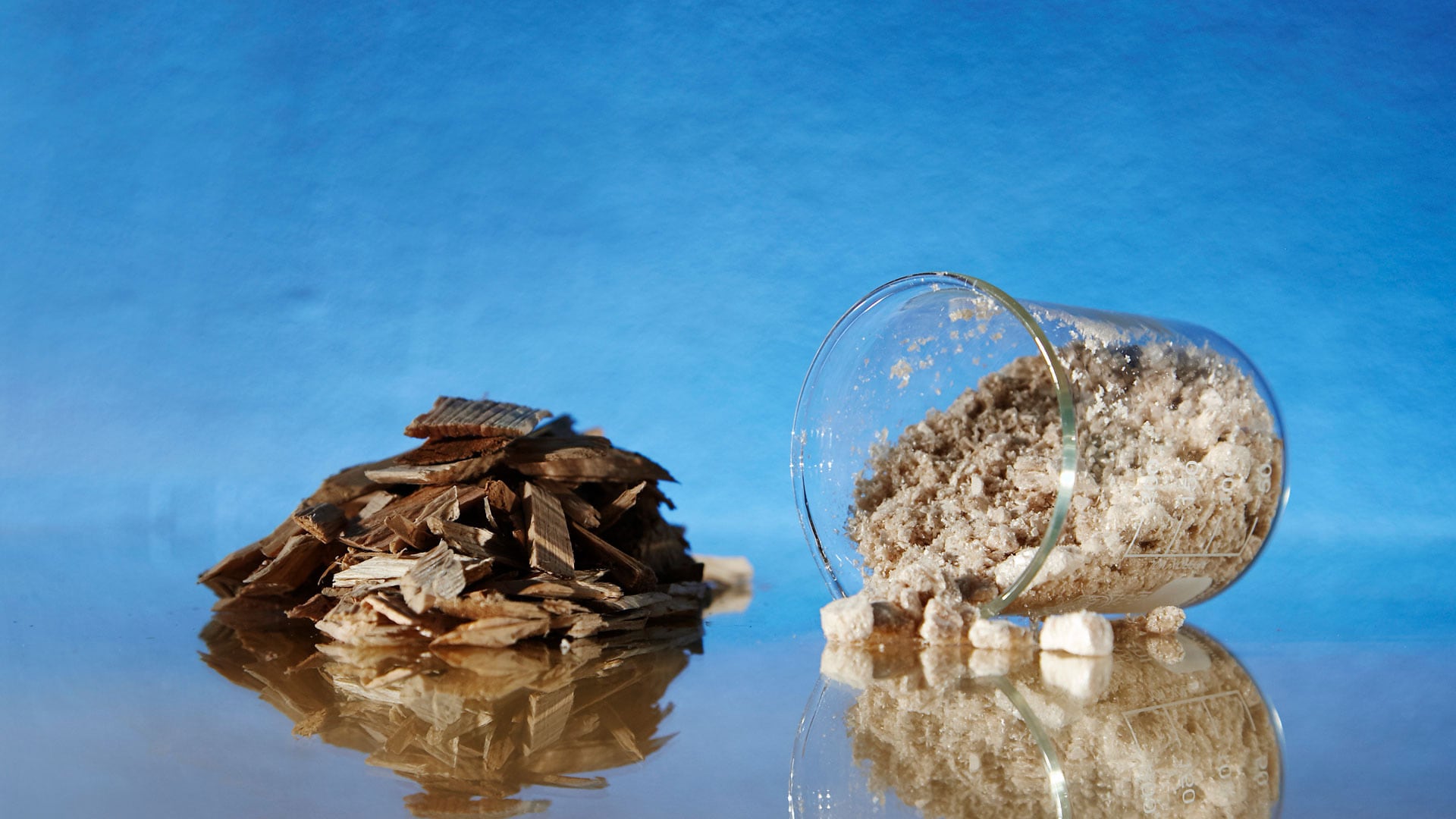Overview
Master
National diploma- Degree awarded Master
- Graduation year Bac + 5
- Mention
- Materials Science and Engineering
-
Location
- GRENOBLE Campus
- Duration One year
-
Available as
- Initial education
- Continuing education
Summary
This Master’s program is available to students who have completed at least 4 years of higher education or 1 year of graduate studies (the equivalent of 240 ECTS credits), in France or abroad. It is a degree course of the Master in Materials Science and Engineering.
Several scholarships are available, in France or depending on the country of origin, to cover all or part of the tuition fees as well as the costs associated with the studies. This program also includes a final-year internship lasting 5-6 months, either in a company or in a laboratory, which pays around €600 a month if it takes place in France.
Objectives
At the end of this Master’s program in Biorefinery and Biomaterials, forthcoming specialists will be able to implement biomass transformation processes and provide solutions that contribute to reducing the use of fossil resources, to intensifying recycling operations and to reducing greenhouse gas emissions.
In particular, they will develop skills related to:
- biorefinery processes
- chemical, physico-chemical and biotechnical means of obtaining elementary building blocks from biomass, essentially from wood
- biosourced materials, biopolymers and biocomposites
These skills are particularly needed today by companies and international organisations in the textile, plastics, packaging, energy, food and pharmaceutical sectors.
With the Master Biorefinery & Biomaterials, graduates will be fully able to meet the new challenges, especially environmental, of the 21st century.
Specificities
With its international dimension, all courses are taught in English. With students from a wide range of backgrounds and origins, this Master’s program offers an unprecedented opportunity to meet people from different cultures and thus develop the ability to work and manage projects in an international context.
Within this unique Master’s program in France, the main topics covered are:
- Biorefinery, fundamental aspects (gas, biomass, plant chemical components, polymer chemistry)
- Biorefinery for energy (bioethanol and biomethane production, diester production)
- Biorefinery for bioproducts (existing biorefinery and conversion processes)
- Biobased materials (biopolymers, bio-based polymers, composites, new biobased materials)
- Sustainability assessment (life cycle assessment principles, environmental factors, energy consumption)
Webinar - Why to join the Biorefinery and biomaterials master's program in Grenoble, France?
Testimonies from our students :
Any questions? Please fill in the form below!
-
Training partners
Laboratories
The training is in line with the themes of the Tec21 Laboratory of Excellence, the Polynat Carnot Institute, the CDP Glyco@Alps, the IDEX of the Université Grenoble Alpes, and the Axelera Chemistry-Environment Competitiveness Cluster.CompaniesAcademic and industrial teachers
Grenoble INP - Pagora / Grenoble INP - Phelma / INSA Lyon / IMT Mines Albi / IFP Energies nouvelles / CEA Liten.EntreprisesIndustrial partnerships (not exhaustive)
Novamont, Dow Corning, Roquette, Cargill, JRS Rettenmaier, Smurfit Kappa, Solvay, Lafarge, Arjowiggings, L’Oréal, Tetra Pak, Arkema, Schneider Electric, Seppic, Novasep, Degrémont, Condat Lubrifiant, Air Liquide, Siegwerk, Fibre Excellence, Total, Soprema, Ahlstrom-Munksjö, CEA, CTP, FCBA, Xylem.
Admission
- Who should apply? Bac + 4, Bac + 5
- required training
This master’s degree is available to students who have completed at least 4 years of higher education or 1 year of graduate studies (the equivalent of 240 ECTS credits) in France or abroad. It is a degree course of the Master in Materials Science and Engineering.
- Tuition fees EU citizens: €250 per year / Non-EU nationals: €3879 per year
-
Available as :
- Initial education
- Continuing education
Entry requirements
Open to candidates from all countries
Procedure only for applicants residing in the following countries:
ALGERIA, ARGENTINA, BENIN, BRAZIL, BURKINA FASO, CAMEROON, CHILE, CHINA, COLOMBIA, CONGO BRAZZAVILLE, SOUTH KOREA, CÔTE D'IVOIRE, UNITED STATES, GABON, GUINEA, INDIA, JAPAN, LEBANON, MADAGASCAR, MALI , MAURITIUS, MEXICO, PERU, CZECH REPUBLIC, RUSSIA, SENEGAL, TAIWAN, TUNISIA, TURKEY, VIETNAM, ZIMBABWE.1 - You must apply via CampusFrance: http://pastel.diplomatie.gouv.fr/etudesenfrance/
2 - You must also apply via the link below.
English
All candidates must provide a certificate of English language level:Mandatory minimum level B1, level B2 strongly recommended, European standards.
Apply now
Application campaign
Register onlineDeadline: May 15, 2025
Open to candidates from all countries
From the 2025-2026 academic year, it will no longer be possible to benefit from a fee exemption when studying for this Master's degree.
Pedagogical Commissions
1st Pedagogical Commission: 30 January 2025
Study of complete files submitted before this date + allocation of scholarships
2nd Pedagogical Commission: 24 March 2025
Study of complete files submitted before this date + allocation of scholarships
3rd Pedagogical Commission: 19 May 2025
Scholarships
The scholarships are dedicated to attract outstanding students to prepare their second year of master in this one-year graduate program in Grenoble.Grenoble INP Foundation / Albéa Tubes Excellence Scholarship
Scholarship funded by Albéa Tubes in the framework of the Grenoble INP Foundation.
Candidates will be selected by an internal committee, including representatives of this master's program. 1 scholarship is allocated each year.
Applications open until July 14
The scholarship covers the cost of enrolment in the Master's program, plus a one-month grant (approx. 700 euros). An end-of-studies internship may also be offered to the selected student.
Only students not already receiving a grant are eligible for the Grenoble INP Foundation / Albea Tubes Excellence Scholarship.
Covering letter and application to be sent to: pagora.contact-masterbio2@grenoble-inp.fr
LabEx Tec 21
From February to April8 000€ / student
Application for the LabEx Tec 21 scholarship
IDEX Scholarships program
IDEX is Institute of Excellence in University Grenoble Alpes.
The selection is made by the recruitment Committee.
5 000€ / student
Apply directly in the application form for the master's program by ticking "yes" in the "finance and fees statuts" section.
Campus France-funded “France Excellence - Climate Change” excellence scholarship
Reserved for Pakistani candidatesApplications open until December 31
Find out more about the scholarship
Campus France Scholarships
French public institutes and the Erasmus+ programme offer a large number of scholarships for foreign students to help them finance their studies in France and Europe. Find out more
Student life
All the services offered to Grenoble INP students
Start of the academic year
September 2025
Contacts
Julien BRAS
Head of the Master Materials Science and Engineering Program Biorefinery and Biomaterials
Education contact
pagora.contact-masterbio2@grenoble-inp.fr
Program
- Course duration One year
- Internships mandatory
Program
1st semester: lessons and practical works
2nd semester: master thesis semester (internship)
International
- Language of instruction English
- Internship abroad No
- Erasmus areas Materials science, Chemical engineering, Paper, printed communications, and biomaterials studies
Prospects
- Graduation year Bac + 5
Careers
Sectors
Chemical, material, plastic, cosmetic, detergent, textile, building, packaging, engineering and energy industrial sectors.
Jobs
Production Engineer, R&D Engineer, Environmental Engineer, Development Engineer... Further learning opportunities
PhD in Materials Science and Engineering
→ I-MEP2 Doctoral School
Engineering - Materials, Mechanics, Environment, Energetics, Processes, Production
French State controlled Master's degree

Your contacts for academic information
Head of the Master Materials Science and Engineering Program Biorefinery and Biomaterials
Education contact
pagora.contact-masterbio2@grenoble-inp.fr




